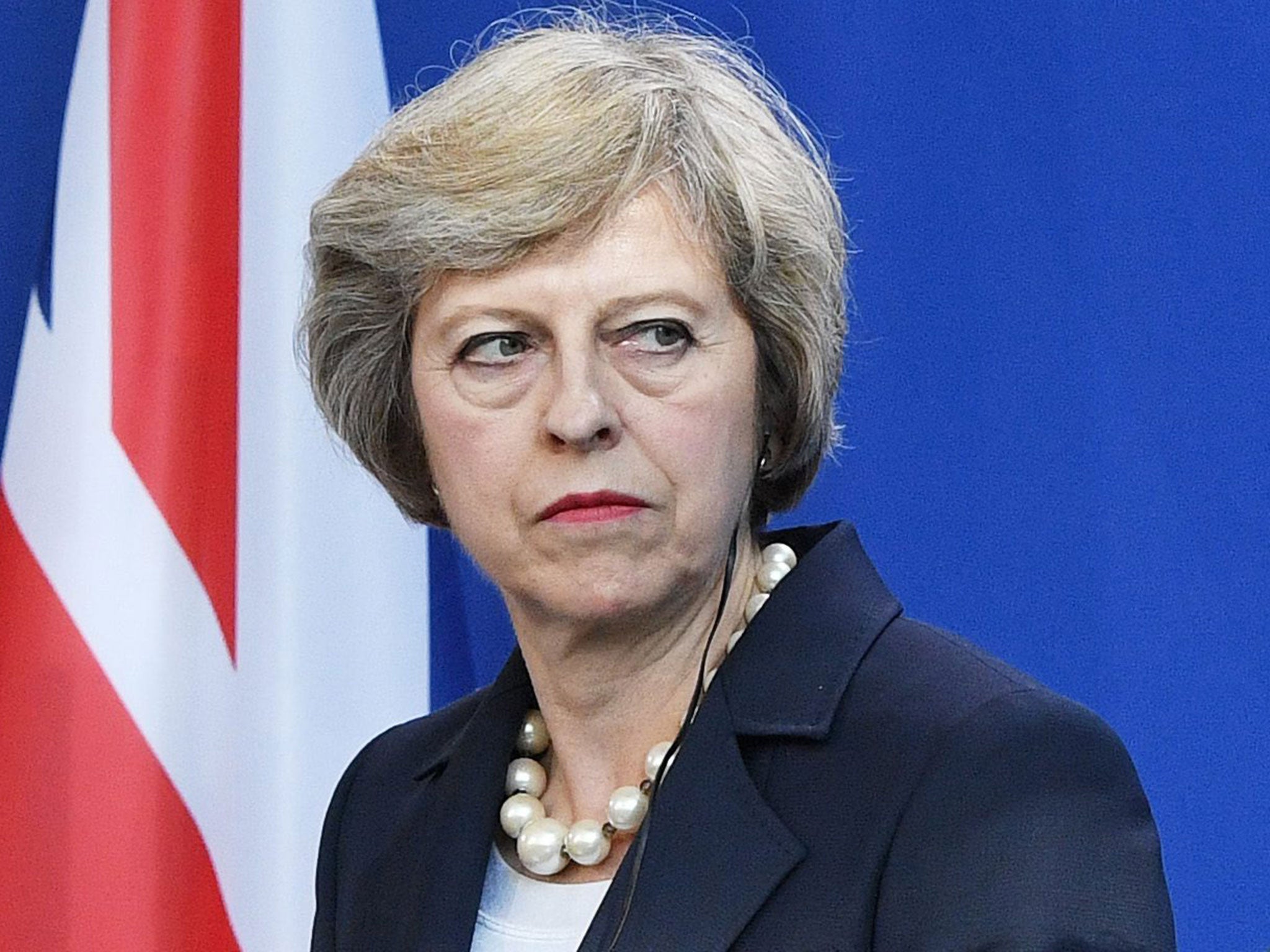If Theresa May wants to bring back grammar schools, she is no champion of social mobility
Grammar schools were scrapped because they didn’t work. In the 1960s, working class pupils made up 26 per cent of grammar school pupils but only 0.3 per cent achieved two A-Levels

Your support helps us to tell the story
From reproductive rights to climate change to Big Tech, The Independent is on the ground when the story is developing. Whether it's investigating the financials of Elon Musk's pro-Trump PAC or producing our latest documentary, 'The A Word', which shines a light on the American women fighting for reproductive rights, we know how important it is to parse out the facts from the messaging.
At such a critical moment in US history, we need reporters on the ground. Your donation allows us to keep sending journalists to speak to both sides of the story.
The Independent is trusted by Americans across the entire political spectrum. And unlike many other quality news outlets, we choose not to lock Americans out of our reporting and analysis with paywalls. We believe quality journalism should be available to everyone, paid for by those who can afford it.
Your support makes all the difference.Before he came to power, former Prime Minister David Cameron said the grammar school debate was a “key test” in determining whether the Conservative Party was an “aspiring party of government” or a “right-wing debating group”. Now we know that Theresa May may be planning to lift the ban on grammar schools and launch a new generation of selective state schools, it seems that the new Prime Minister is returning the Tory party to its old ways.
It’s true that our education system is in crisis. Schools are starved of much-needed investment and teachers continue to exit the profession at an alarming rate. In modern Britain, the most accurate predictor for how well a child will do by the time they are 18 is not their individual ability and promise but the qualifications held by their parents.
It is an issue that goes to the core of our education system. It is an issue that should be at the forefront of education and other social policies, and should be discussed at the highest levels of government. But instead of focusing on reforming this backward trend, this Government is preparing to reinstate an outdated policy that will only exacerbate the problems we already face.
At the heart of the Tory fascination with grammar schools is the issue of class and the fiction that it does not, or need not, exist when it comes to education. Conservative proponents of the grammar system still believe, despite all the evidence, that selective education at the age of 11 can iron out the effects of poverty or lack of aspiration in the home and promote social mobility.
The facts, however, tell an entirely different story. The grammar schooling system, and the process of selection, does not tackle but merely reinforces class structures.
A report by researchers at Bristol University supports the idea that the grammar system relies on recruitment by class rather than by innate ability – no wonder, given the myriad opportunities middle class children may have on their peers by age 11 when selection occurs. Researchers found that disadvantaged children in local authority areas were only half as likely to enrol in a grammar school as other children with the same academic ability.
A recent study by the Sutton Trust found that, of the 164 grammar schools still open in 2014, 119 had fewer than 3 per cent of students eligible for free school meals; the national average across all state schools was 18 per cent. That is not a figure representative of a system that promotes radical social mobility.
Given that this is a historical system, we also have the benefit of looking back at results over decades. The Gurney-Dixon report of 1954 found that, in their heyday, only a tiny proportion of grammar school students from an unskilled working class background ever gained entry into university. The same report found that, of the tiny proportion of working class students that attended a selective school, two-thirds left without achieving three O-levels.
In the 1960s, the Robbins report showed that, while the working class community represented 26 per cent of the overall grammar school intake, just 0.3 per cent achieved two A-levels or more.
That is a record of abject failure on the stated goals of the grammar system: social mobility and academic attainment.
That is all before we delve into the complex discussion of the psychological effect of rejection and mass competition at the age of 11, a subject so significant and sensitive it merits a column in its own right. It ignores the question, too, of how it can be fair that failing one examination at the age of 11 can in some areas make the difference between attending an exceptional school or a failing one.
The grammar school debate is one that belongs in the 1960s. Tony Blair was right to call an end to it some 20 years ago. Britain today is a divided nation, and the erection of further barriers is no solution to our social problems.
In her acceptance speech as incoming Prime Minister, Theresa May spoke of being a champion for all. In seriously contemplating the return of a grammar school system, she has shown her Conservatives to be the same divisive, out of touch, elitist party of the past.
Join our commenting forum
Join thought-provoking conversations, follow other Independent readers and see their replies
Comments